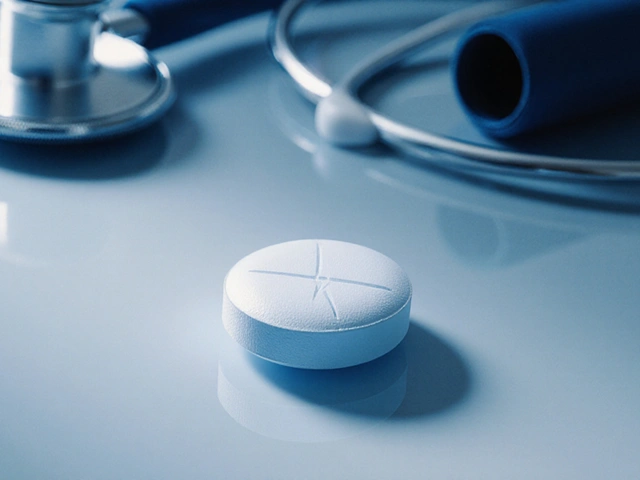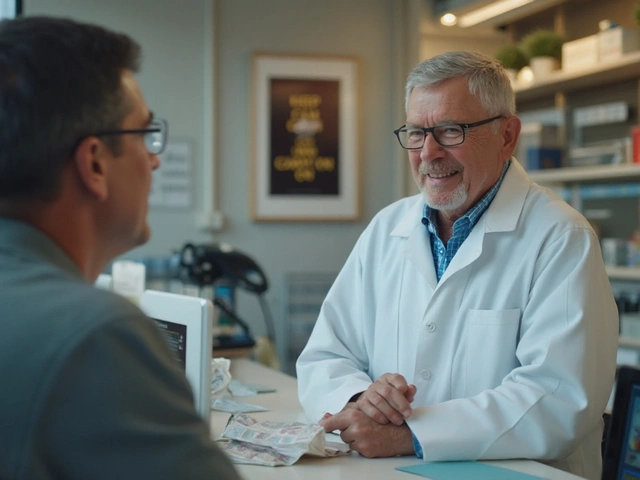Dizziness with Alcohol: Why It Happens and What You Can Do
Feeling woozy after a drink? That spinning, lightheaded or unsteady feeling has straightforward causes. Alcohol affects your brain, inner ear, blood pressure and blood sugar — all of which help you stay balanced. Below I explain the main reasons for dizziness with alcohol and give simple, practical steps to reduce the risk.
How alcohol causes dizziness
Alcohol relaxes and depresses the central nervous system. That slows signals between the brain and inner ear, so your balance system gets mixed messages. Even a small amount can trigger vertigo in sensitive people.
Alcohol also widens blood vessels, which can drop your blood pressure and cause lightheadedness when you stand up fast. Dehydration makes this worse — alcohol is a diuretic, so you lose fluids and electrolytes that your body needs to keep your head clear.
Low blood sugar is another culprit. Drinking on an empty stomach or mixing alcohol with diabetes medicines (for example, drugs like glipizide or insulin) can cause hypoglycemia, which looks a lot like dizziness and confusion.
Chronic heavy drinking damages the vestibular system and nerves over time, so some people develop persistent imbalance or a tendency to feel dizzy even when sober.
Medications, mixing risks, and warning signs
Mixing alcohol with certain meds increases dizziness and danger. Sedatives and sleep meds (benzodiazepines like alprazolam), some antidepressants (for example mirtazapine), antihistamines that cause drowsiness, and opioid painkillers all amplify alcohol’s sedating effects. That raises fall risk and can cause severe drowsiness or fainting.
If you drink while on blood pressure medicines, you may get excessive drops in pressure. If you use diabetes drugs, check blood sugar more often after drinking. When in doubt, read your medication leaflet or ask a pharmacist.
Get medical help if dizziness is accompanied by fainting, chest pain, severe shortness of breath, new confusion, slurred speech, or if the spinning lasts more than a day. Those are signs something serious may be going on.
Practical tips to avoid dizziness from alcohol: sip slowly, eat before and while you drink, alternate alcoholic drinks with water, and avoid standing up quickly. If you’re on medications, check for interactions and consider skipping alcohol on days you take stronger doses. When you feel dizzy, sit or lie down immediately and hydrate. If you drive or operate machinery, don’t risk it.
Short-term dizziness from a few drinks usually clears as alcohol leaves your system and you rehydrate. But repeated episodes or ongoing imbalance deserve a doctor's check — especially if you're on medications, have diabetes, heart issues, or a history of vestibular problems. Staying informed and cautious keeps you safer and feeling better.

Alcohol and Spironolactone: Health Risks, Potassium Spikes & Dehydration You Can't Ignore
Mixing alcohol with spironolactone can hit harder than you think, causing potassium spikes, sudden dizziness, and risky dehydration. This article digs into the biology behind these side effects, unpacks warning signs, and delivers practical tips for avoiding complications. You'll find real-life advice, a must-see list of dehydration signals, and facts you won’t stumble upon on a medicine bottle. Stay informed—your kidneys and heart will thank you.
Health and MedicineLatest Posts
Tags
- online pharmacy
- medication safety
- generic drugs
- medication
- dietary supplement
- side effects
- online pharmacy UK
- drug interactions
- mental health
- impact
- online pharmacies
- statin side effects
- dosage
- generic vs brand
- pediatric antibiotics
- antibiotic side effects
- skin health
- health
- pain relief
- dietary supplements




